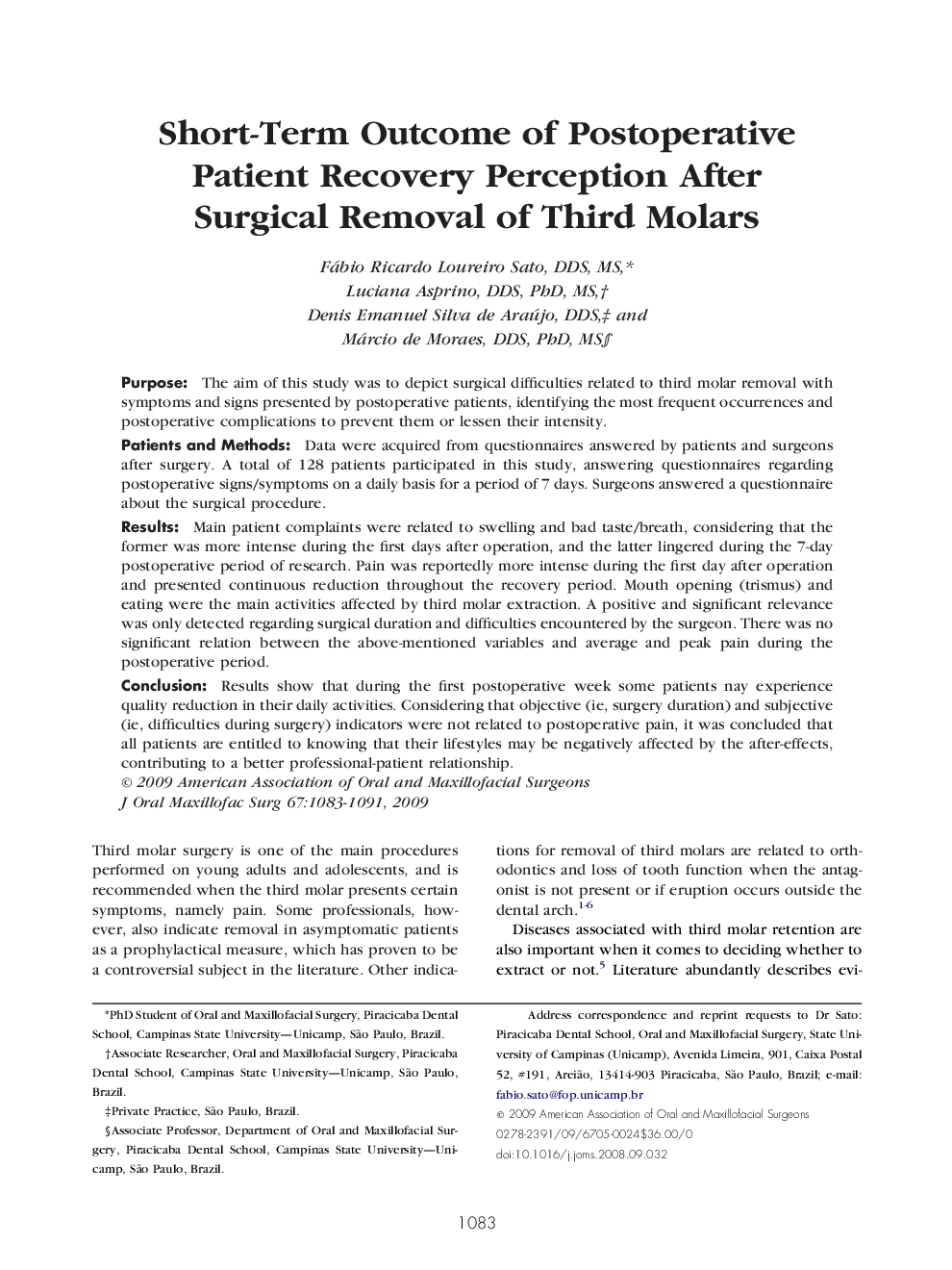| Article ID | Journal | Published Year | Pages | File Type |
|---|---|---|---|---|
| 3154198 | Journal of Oral and Maxillofacial Surgery | 2009 | 9 Pages |
PurposeThe aim of this study was to depict surgical difficulties related to third molar removal with symptoms and signs presented by postoperative patients, identifying the most frequent occurrences and postoperative complications to prevent them or lessen their intensity.Patients and MethodsData were acquired from questionnaires answered by patients and surgeons after surgery. A total of 128 patients participated in this study, answering questionnaires regarding postoperative signs/symptoms on a daily basis for a period of 7 days. Surgeons answered a questionnaire about the surgical procedure.ResultsMain patient complaints were related to swelling and bad taste/breath, considering that the former was more intense during the first days after operation, and the latter lingered during the 7-day postoperative period of research. Pain was reportedly more intense during the first day after operation and presented continuous reduction throughout the recovery period. Mouth opening (trismus) and eating were the main activities affected by third molar extraction. A positive and significant relevance was only detected regarding surgical duration and difficulties encountered by the surgeon. There was no significant relation between the above-mentioned variables and average and peak pain during the postoperative period.ConclusionResults show that during the first postoperative week some patients nay experience quality reduction in their daily activities. Considering that objective (ie, surgery duration) and subjective (ie, difficulties during surgery) indicators were not related to postoperative pain, it was concluded that all patients are entitled to knowing that their lifestyles may be negatively affected by the after-effects, contributing to a better professional-patient relationship.
